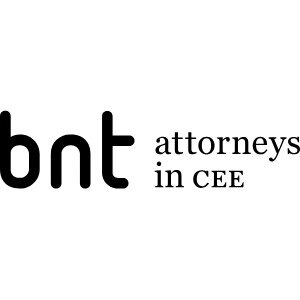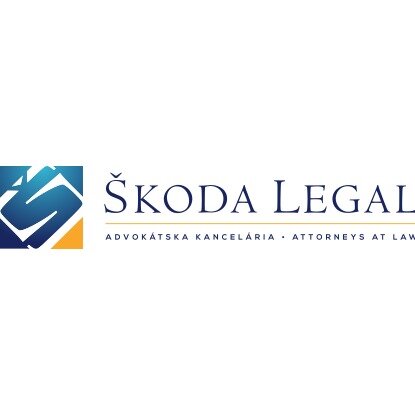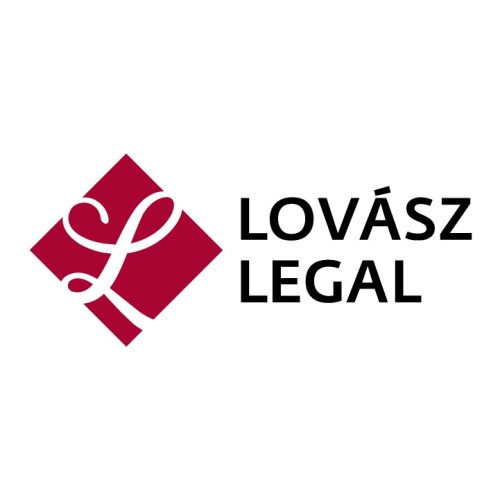Best Environmental Law & Compliance Lawyers in Bratislava
Share your needs with us, get contacted by law firms.
Free. Takes 2 min.
List of the best lawyers in Bratislava, Slovakia
About Environment Law in Bratislava, Slovakia
Environment law in Bratislava, as well as throughout Slovakia, is a critical area of legal practice centered around the protection and preservation of natural resources, biodiversity, and sustainable development. Bratislava, the capital city, is known for its historical architecture and is situated on the banks of the Danube River, with significant natural landscapes nearby, such as the Little Carpathians. Environmental regulation in Slovakia is driven by both national laws and European Union directives. It encompasses various aspects, including air and water quality, waste management, industrial pollution, and nature conservation.
Why You May Need a Lawyer
Individuals and businesses may require legal assistance in environmental matters for several reasons. Common situations include compliance with environmental regulations, resolving disputes related to land use or pollution, obtaining permits for construction or industrial activities, and addressing issues arising from property transactions that involve environmental considerations. Additionally, those facing enforcement actions or fines from regulatory bodies may need legal representation to understand their rights and obligations.
Local Laws Overview
Environmental law in Bratislava is governed by both national legislation and EU regulations. Key areas of focus include:
- Water and Air Quality: Regulations ensure the protection of water bodies and air quality standards to mitigate pollution and safeguard public health.
- Waste Management: Laws enforce proper disposal and recycling of waste to minimize environmental impact. Specific regulations exist for hazardous and non-hazardous waste.
- Nature Conservation: Protected areas and species are under stringent laws to preserve biodiversity and natural habitats.
- Environmental Impact Assessments (EIA): Projects likely to have significant environmental impacts must undergo an EIA to evaluate and mitigate potential harm.
- Industrial Emissions and Pollution Control: Regulations impose limits on emissions from industrial activities to reduce environmental damage.
Frequently Asked Questions
What is environmental compliance?
Environmental compliance refers to adhering to environmental laws, regulations, standards, and other requirements, such as site permits, set by local authorities and the EU.
How can I find out if my property is subject to environmental regulations?
Consult relevant local authorities or a legal expert to assess if your property falls under specific environmental regulations, especially if near protected areas or water bodies.
What should I do if I am penalized for an environmental violation?
Seek immediate legal counsel to understand the nature of the violation, the potential penalties, and any steps you can take to rectify the situation or appeal the decision.
Do environmental laws affect property transactions?
Yes, environmental considerations often affect property transactions. Obtaining detailed environmental assessments or audits is crucial before buying or selling property.
What is an Environmental Impact Assessment?
An Environmental Impact Assessment (EIA) is a process used to evaluate the environmental effects of a proposed project before it is carried out, aimed at minimizing negative impacts.
How are protected areas managed under Slovak law?
Protected areas are managed under specific regulations that restrict activities to preserve natural habitats and biodiversity. This may include limitations on development and resource extraction.
What are the consequences of non-compliance with environmental laws?
Non-compliance can lead to penalties, fines, remediation orders, and legal action by the state or affected parties. It can also damage a company’s reputation and financial standing.
How can I report environmental violations?
You can report environmental violations to local environmental authorities or use specific hotlines provided by government agencies for reporting purposes.
Are there incentives for environmentally friendly projects?
Yes, there are various incentives, including tax benefits and grants, offered by governmental bodies to encourage environmentally sustainable practices and technologies.
What role do NGOs play in environmental protection in Slovakia?
Non-Governmental Organizations (NGOs) are substantially involved in advocacy, public awareness campaigns, monitoring environmental compliance, and participating in legal actions to protect the environment.
Additional Resources
For those seeking more information or assistance, consider the following resources:
- Ministry of Environment of the Slovak Republic: The primary governmental body overseeing environmental policy and regulation.
- Slovak Environmental Agency: Provides data, research, and guidance on environmental matters.
- Bratislava City Council's Environmental Department: Handles local environmental issues and is a point of contact for citizens.
- Environmental NGOs: Organizations such as Greenpeace Slovakia and Friends of the Earth Slovakia focus on environmental protection and advocacy.
Next Steps
If you require legal assistance regarding environmental matters, consider the following steps:
- Contact a legal professional with expertise in environmental law in Bratislava for a consultation.
- Gather all relevant documents, such as permits, correspondence, and assessments, to prepare for your legal consultation.
- Identify your goals and concerns related to the environmental issue you are facing to communicate effectively with your lawyer.
- Explore local legal aid services if you require affordable legal assistance.
With the right guidance and resources, you can navigate the complexities of environmental law in Bratislava, Slovakia, effectively.
Lawzana helps you find the best lawyers and law firms in Bratislava through a curated and pre-screened list of qualified legal professionals. Our platform offers rankings and detailed profiles of attorneys and law firms, allowing you to compare based on practice areas, including Environmental Law & Compliance, experience, and client feedback.
Each profile includes a description of the firm's areas of practice, client reviews, team members and partners, year of establishment, spoken languages, office locations, contact information, social media presence, and any published articles or resources. Most firms on our platform speak English and are experienced in both local and international legal matters.
Get a quote from top-rated law firms in Bratislava, Slovakia — quickly, securely, and without unnecessary hassle.
Disclaimer:
The information provided on this page is for general informational purposes only and does not constitute legal advice. While we strive to ensure the accuracy and relevance of the content, legal information may change over time, and interpretations of the law can vary. You should always consult with a qualified legal professional for advice specific to your situation.
We disclaim all liability for actions taken or not taken based on the content of this page. If you believe any information is incorrect or outdated, please contact us, and we will review and update it where appropriate.














